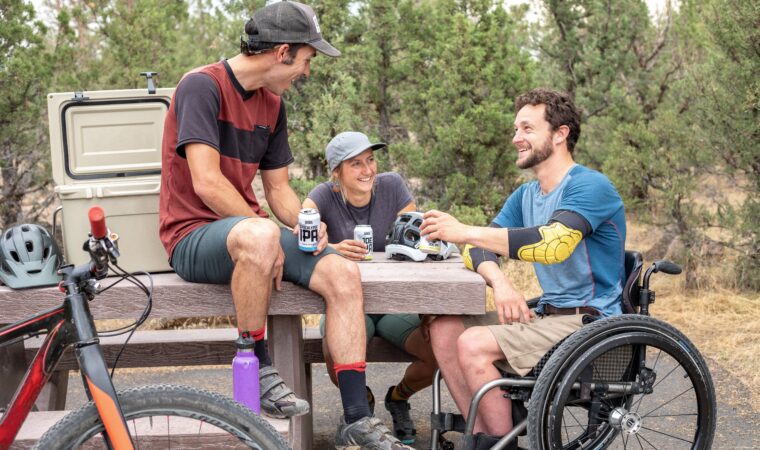By: Cassandra Brandt
There are many tragedies that may surprise an individual at random in life, forcing one to pick up the pieces somehow. Sustaining a debilitating injury is like that.
With the crush of my C4 vertebrae so much more than that little bone was left broken. My career was stripped from me in an instant. My care overwhelmed and all but broke my little family. My self-worth was shattered.
In the years that followed I have learned to pick up the pieces with no hands.
I have learned to adapt.
It has taken a daily, conscious effort to focus on my perspective and remember the following tips I’ve learned:
1. Focus on what you can do
Focusing on the physical activities that are no longer feasible only brings one to a place of self-pity. Instead, check out the assistive technology, try the adaptive sports. I focus on what I can still do and challenge myself to continually learn how to become more independent despite my disability.
2. Focus on what you can control
This one is about choosing a positive perspective too. I cannot control my motor function nor my health to a certain degree, and my schedule may be subject to the time frames of others. But there is truth in the saying that the more you value things outside of your control the less control you have.
3. Stay busy at meaningful work
Staying busy at creative, productive, fulfilling, goal-oriented work is optimal for my mental health. Many people with spinal cord injuries find fulfilling work post injury. Staying busy with duties helping care for the family is productive work too, and very fulfilling although you may not be capable of serving in the same capacity as prior to injury.
4. Educate yourself about your injury
The more you know about your specific diagnosis the more control you will be capable of taking over your health. Spinal cord injury comes with a plethora of secondary issues it’s important to be aware of. Also, the more informed you are regarding your injury the easier it will be for you to advocate for yourself. Health professionals are not always adequately experienced with spinal cord injury.
5. Challenge yourself to keep experiencing life
It’s easy to stay in bed and avoid the pain and stress of the transfer and any subsequent activities: bad weather, unreliable transportation; It seems inevitable something always happens. I have learned, however, that it’s worth it to push myself to have experiences. I buy the concert tickets and go to the festivals. Sure there is pain and stress but I never regret it like I do a day in bed.
6. Make peace with your fate
For me this meant acceptance and it also meant forgiveness for the person responsible for my injury. Yes, this person’s moment of carelessness forced me to make the ultimate sacrifice. And no this person didn’t take accountability and step up like I believe I would have, should the tables be turned. But the peace that I need to exist between us isn’t for her; it’s for me.
After a tragedy of this magnitude, one is still left with a choice. Perspective is everything. I choose joy and gratitude that I am still alive over bitterness. I’m convinced that’s been the catalyst in coming to my own acceptance and adaptation regarding my spinal cord injury.
